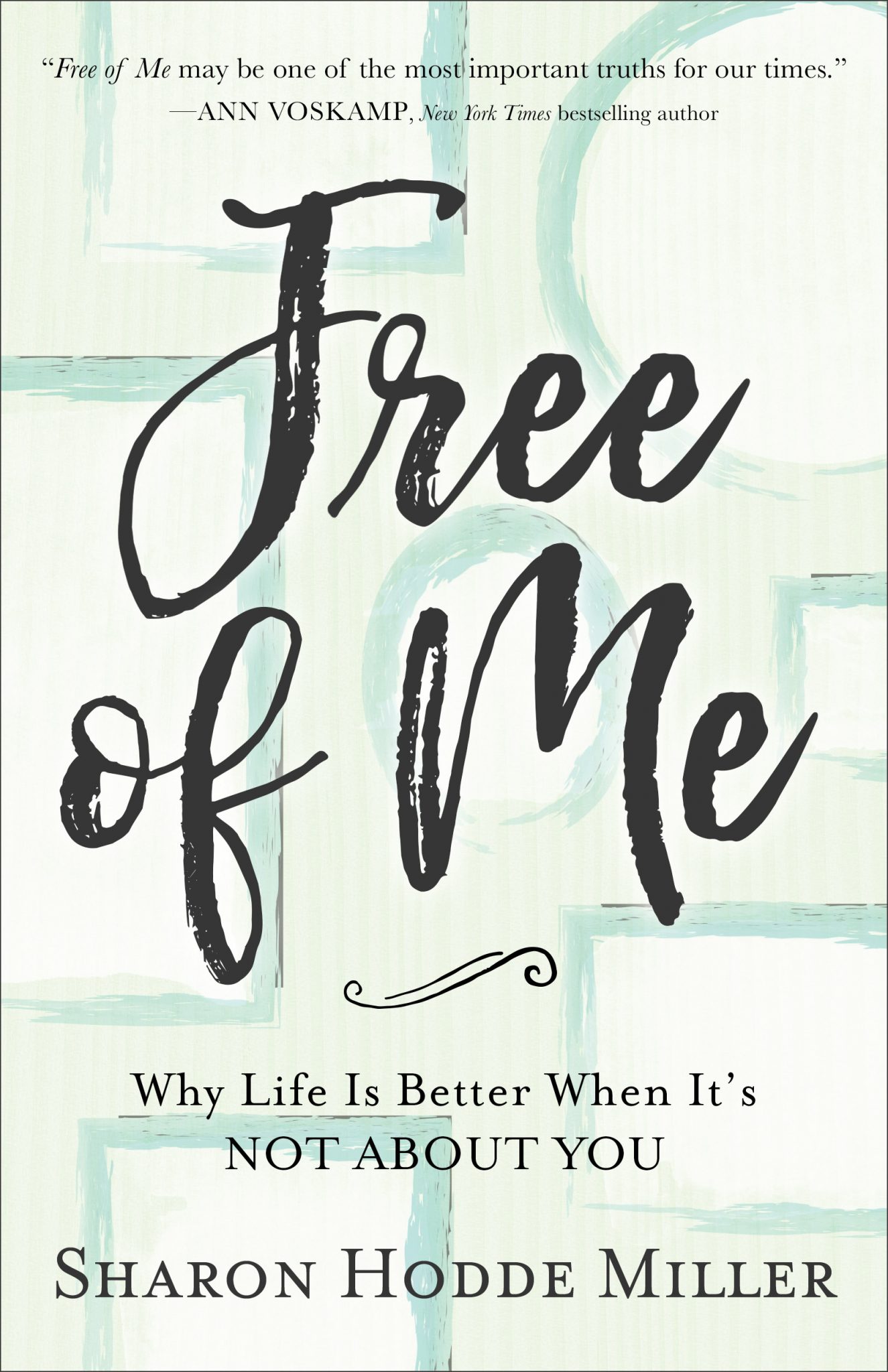I wanna talk about me; I wanna talk about I; I wanna talk number one, oh my me my; what I think, what I like, what I know, what I want, what I see! I like talkin’ bout you you you you usually, but occasionally . . . I wanna talk about me!
If we’re honest, is this the theme song humming beneath most of our day-to-day interactions? All I know is the 2001 Toby Keith hit played in my head for a few days after I read Sharon Hodde Miller’s book, Free of Me: Why Life is Better When It’s Not about You.
After experiencing painful insecurity and loneliness for several years, Miller realized she was walking around with a metaphorical mirror in front of her face. She found she’d been approaching many areas of life—family, friends, work, possessions, church, even God himself—as objects to be used for self-interest. She had turned them into mirrors, reflecting her own nature back to her, instead of opportunities to practice love and worship.

Free of Me: Why Life Is Better When It's Not about You
Sharon Hodde Miller
Free of Me: Why Life Is Better When It's Not about You
Sharon Hodde Miller
We live in a culture that’s all about self, becoming the best “me” I can be instead of becoming like Jesus. This me-centered message affects every area of our lives—our friendships, our marriages, even our faith—and it breaks each one in different ways. The self-focused life robs our joy, shrinks our souls, and is the reason we never quite break free of insecurity.
In this book, Sharon Hodde Miller invites us into a bigger, Jesus-centered vision—one that restores our freedom and inspires us to live for more. She helps readers
- identify the secret source of insecurity
- understand how self-focus sabotages seven areas of our lives
- learn four practical steps for focusing on God and others
- experience freedom from the burden of self-focus
Anyone yearning for a purpose bigger than “project me” will cherish this paradigm-shifting message of true fulfillment.
Miller—a pastor’s wife, mother of two small boys, and blogger at SheWorships.com—started searching for solutions, bumping first into a women’s book study whose message was less than helpful. She concluded this common Christian self-help solution to women’s insecurity wasn’t going to cut it:
The only path out of self-focus is self-forgetfulness, which is why Christian messages about “believing in myself” weren’t helping me. Instead of solving the problem, they were contributing to it. Rather than pry my gaze off of myself, they simply handed me a mirror with a Jesus tint. (34)
Not About Sharon Miller, Either
Miller tells quite a bit of her own story throughout Free of Me. Given the theme of the book (“it’s not about you”), this might raise questions about her sincerity in wanting to take her eyes off herself. But the final chapters offer a clear vision of her message, which is about worship: you must worship God, she says, in order to get your eyes off yourself.
You must worship God in order to get your eyes off yourself.
Even though we hear a number of Miller’s own stories in order to reach that message, it’s a message worth hearing. Besides, her many anecdotes help us relate, and we begin to recognize the problem as our own.
In the middle of the book, she spends a chapter on each of the areas of life that we often commandeer to serve self: God, family, physical appearance, possessions, friendships, calling, and church. Here we find some helpful phrases such as “compassion over comparison” (referring to our attitude toward physical appearance), “image management” (as it relates to controlling our spouse’s reputation to protect our own), and “an attitude of gratitude” (to describe Dietrich Bonhoeffer’s solution for a critical spirit among church members).
Only Antidote to Self-Focus
But it’s in the final four chapters—which Miller has alliterated “Praise,” “People,” Purpose,” and “Passion”—that we see true solutions taking shape.
Especially in the first of these, “Praise: Why Loving God Sets Us Free,” she outlines the strategy that helped her re-train herself out of panicky trips into self-absorption:
We can embrace the truth that God created us to praise. And the more praiseworthy the thing, the more joy we have in praising it, a principle that finds its ultimacy in God. . . . That’s also why my “strategy of praise” is more than a distraction or an escape. It’s what we were created to do. We were created to worship. It’s why we exist. When we take the time to meditate on God and praise him for who he is, our souls connect with their God-given design. (138)
And in the chapter on “People: Why Loving Others Unleashes Us,” she brings us to the logical outflow of worshiping God, which is serving others:
When insecurity strikes, the question we must ask ourselves is, How can I turn this into love? This question opens our eyes to the people we might have previously overlooked, and it prepares our hearts to care for them. Whether it’s a crushing grief or a slight pang of insecurity, this question pulls us out of our soul-killing self-focus, and it shows us the way to resurrection, no matter the size of the death. (151)
Age of Self
Our contemporary age could be characterized as the Age of Self. Our social climate plays to the selfish tendencies already in our hearts. A book about why life is “not about you,” then, could not be more timely. And while it may feel ironic to read a book about yourself, and yet how you aren’t the center of the world, it’s certainly a place to start. Any word that directs the self onto the road of worship is a word well spent.
And any song that interrupts the Toby Keith anthem in our hearts is a song worth hearing.



































